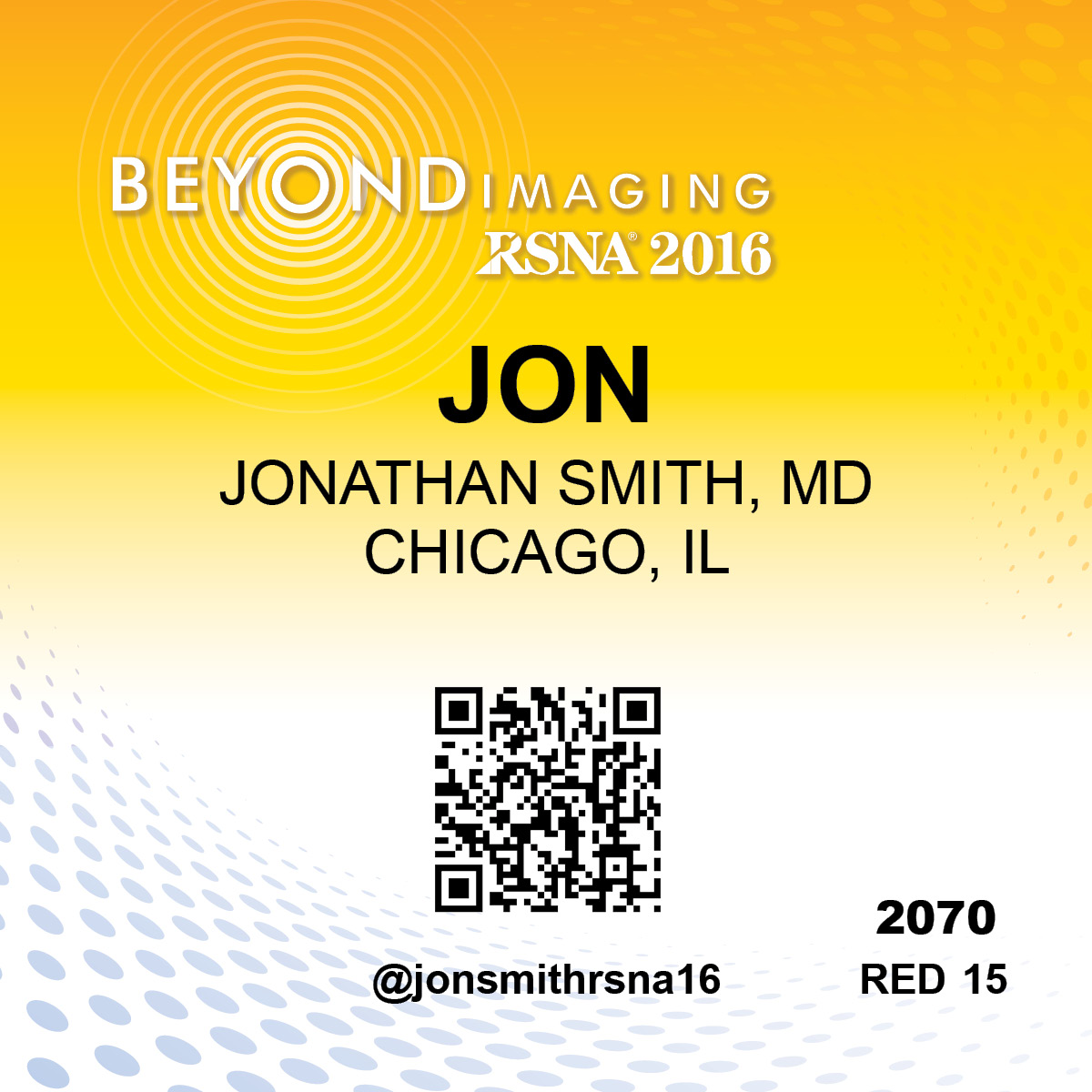Survey: One-Fifth of Patients Not Getting Pre-Exam Imaging Information
Thursday, Dec. 01, 2016
More than 20 percent of patients are not receiving any information prior to a radiology examination and the majority of information patients are getting about imaging exams is being provided by referring physicians — and patients prefer this method.
These were among the findings of a multi-institutional U.S. survey presented during a Wednesday poster discussion by Jay K. Pahade, MD, director of radiology quality and safety at the Yale Department of Radiology and Biomedical Imaging in New Haven, Conn.

Survey co-lead investigator Jay K. Pahade, MD
"The survey exposed that nearly one-fifth of patients/patient caregivers are not receiving information regarding their imaging exam highlighting an opportunity to improve patient engagement and awareness before the radiology encounter," said Dr. Pahade, adding the results were somewhat surprising.
In early 2015, Dr. Pahade and co-lead investigator Andrew Trout MD, chief of nuclear medicine in the Department of Radiology/Medical Imaging at the Cincinnati Children's Hospital, led a team who conducted a 24-item survey to assess what information patients find useful before their imaging exam, who they want to get the information from, and how preference varies based on demographics and patient-specific variables.
The survey comprising 1,542 patients, was conducted at three sites primarily caring for adult patients, Yale-New Haven Hospital, Massachusetts General Hospital and the University of Alabama at Birmingham — and at three sites primarily serving pediatric patients, Cincinnati Children's Hospital Medical Center, Indiana University, Riley Children's Hospital and Stanford University Lucile Packard Children's Hospital. Results included responses from all facilities combined.
Key findings showed that 22 percent of respondents reported receiving no information regarding their radiology exam before presenting for imaging, Dr. Pahade said. Results also showed that the ordering provider was the most common source of information (65 percent) about a patient's radiology exam and that 72 percent of respondents said the referring physician was the preferred source for getting exam information.
Other significant results showed that 52 percent of respondents independently tried to find information about their radiology exam with most (43 percent) utilizing multiple sources and the fewest number (5 percent) using radiology specific-web sites, Dr. Pahade said. The findings were surprising to researchers, he said.
"We were surprised by the proportion of patients who reported receiving no information on their radiology exam," Dr. Pahade said. "We were also surprised that while more than half of respondents reported trying to find information on their own, only 5 percent reported using a radiology-specific website to get information."
Despite the emphasis on radiation awareness by the radiology community and press, patients surveyed ranked information regarding exam preparation as most important while getting information about whether an alternative radiation-free exam could be utilized was ranked as least important, the survey showed.
Given that the survey showed that referring physicians are the most common and preferred source for information about imaging exams, this is an important group for educational outreach by the radiology community, he said.
While researchers expected the ordering provider to be the most common source of information for radiology exams, they were surprised that such a small number of patients reported preferring to hear the information from the radiology center conducting the exam (21 percent) or from the providers directly involved in performing or interpreting the exam (9 percent), Dr. Pahade said.
"This is likely related to lack of awareness about radiology and the role of radiologists from most patients," said Dr. Pahade.
The study provides insight into the effectiveness of current pre-exam information delivery, patient and parent/caregiver preferences on receiving information, the importance of specific exam-related information and methods patients currently use to obtain information on their own, Dr. Pahade said.
Results also highlight the need for better awareness and marketing of radiology-specific sites such as the RSNA/ACR patient website, RadiologyInfo.org, so patients can obtain accurate pre-exam information, he added.




 Home
Home Program
Program Exhibitors
Exhibitors My Meeting
My Meeting
 Virtual
Virtual Digital Posters
Digital Posters Case of Day
Case of Day

